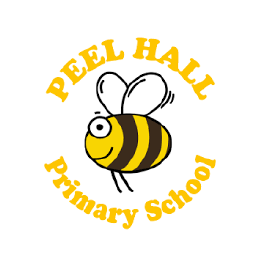Geography
Welcome to the Geography area of our school website, my name is Miss Brownlee and, as well as being the Deputy Head, I am the subject leader for this area.
My vision for Geography at Peel Hall Primary School is that quality teaching in Geography can inspire, in pupils, a curiosity and fascination about the world and its people. It, therefore, forms an important part of the curriculum and is taught both discretely and as part of our thematic, question- led approach, which embeds skills, facts and knowledge. Through the delivery of a broad and balanced curriculum, geography skills, knowledge and facts are applied through their delivery in other subject areas. For example, even though a topic may be a history based topic, relevant geographical skills facts and knowledge will also be taught.
Our pupils learn geographical skills, facts and knowledge in a progressively demanding way, beginning with concrete experiences (real experiences and activities), before moving on to using secondary resources such as the internet, atlases and maps, etc. These knowledge, skills and facts are then applied to more abstract situations, so as to develop our pupils understanding about diverse places, people, resources and natural and human environments, the Earth’s key physical and human processes. As pupils progress, their growing knowledge about the world, we hope, will help them to deepen their understanding of the interaction between physical and human processes, and of the formation and use of landscapes and environments.
We encourage learning to take place with very practical, concrete experiences, such as field studies within the local environment. This then moves on to using pictorial representations of what they have learnt, such as drawing and constructing maps. This can then lead to more abstract ideas, such as putting themselves in the place of a settler arriving on new land.
We emphasise the enquiry skills prevalent in the subject of Geography and seek to develop pupils’ reasoning and questioning abilities, as well as being able to communicate using the appropriate vocabulary, as language and communication underpin all aspects of teaching.
Early Years Foundation Stage
In the Early Years Foundation Stage, Geography forms part of the ‘Understanding the World’ ELG and involves us providing activities and experiences for children, which involve them developing their knowledge and guiding them to make sense of their physical world and their community through opportunities to explore, observe and find out about people, places, technology and their immediate environment.
Teaching allows children to develop an understanding about similarities and differences in relation to places, objects, materials and living things. They talk about the features of their own immediate environment and how environments might vary from one another. They make observations of animals and plants and explain why some things occur, and talk about changes.
In planning and guiding children’s activities, practitioners, through careful observation of the children in different contexts, reflect on the different ways that children learn. Practitioners take in to account children’s prior knowledge in order to offer children learning opportunities through playing and exploring. This involves the children being actively involved in their learning, through a range of activities and by supporting the children to develop their critical thinking skills in this area of the curriculum.
Key Stage 1 and 2
In Key Stages 1 and 2 Geography is delivered through four strands: 1. Locational knowledge
- Place knowledge
- Human and physical geography
- Geographical skills and fieldwork.
Within our school, our geographical teaching ensures coverage of these four strands but they may be inter-linked by the way the activities are presented to the children. For example, children may use maps to locate the capital cities of the United Kingdom, whilst at the same time learning where these areas are in terms of location, in relation to each other, using the points of the compass.
Due to some of the barriers our children experience they are taught subject specific language in meaningful contexts. This enables them to gather, locate and interrogate geographical data using appropriate skills to help them arrive at reasonable conclusions, about the relationship between physical and human aspects of the subject and how these may change over time. The activities/ experiences we offer in Geography develop pupil’s contextual knowledge in a progressive and logical way, so as to make our pupils explicitly aware of their location, the part they have to play in terms of their responsibilities and the impact they have upon the environment.
In Key Stage 1 pupils are provided with opportunities and experiences to develop knowledge about their locality, the United Kingdom and the world. They will be introduced to basic subject-specific vocabulary relating to human and physical geography and begin to use geographical skills, including first-hand observation, to enhance their locational awareness. Activities and experiences are planned as part of the curriculum, in order to combat the limited opportunities some of our children experience, in relation to trips and experiential learning.
In Key Stage 2 pupils will be provided with opportunities and experiences to extend their knowledge and understanding beyond the local area to include the United Kingdom, Europe and North and South America. This will include the location and characteristics of a range of the world’s most significant human and physical features. Pupils will develop their use of geographical knowledge, understanding and skills to enhance their locational and place knowledge as well as the impact and inter-relationship between the human and physical elements of the subject.
How we make assessments in relation to the teaching and learning of Geography
At our school pupils are assessed against end of Key Stage expectations, as prescribed in the National Curriculum. However, we make formative assessments through the use of Classroom Monitor, our internal tracking system, which teachers update on a regular basis. As Subject Leader I monitor this to ensure that formative assessments are being made regularly to ensure that coverage and children’s attainment is in line with age-related expectations.

